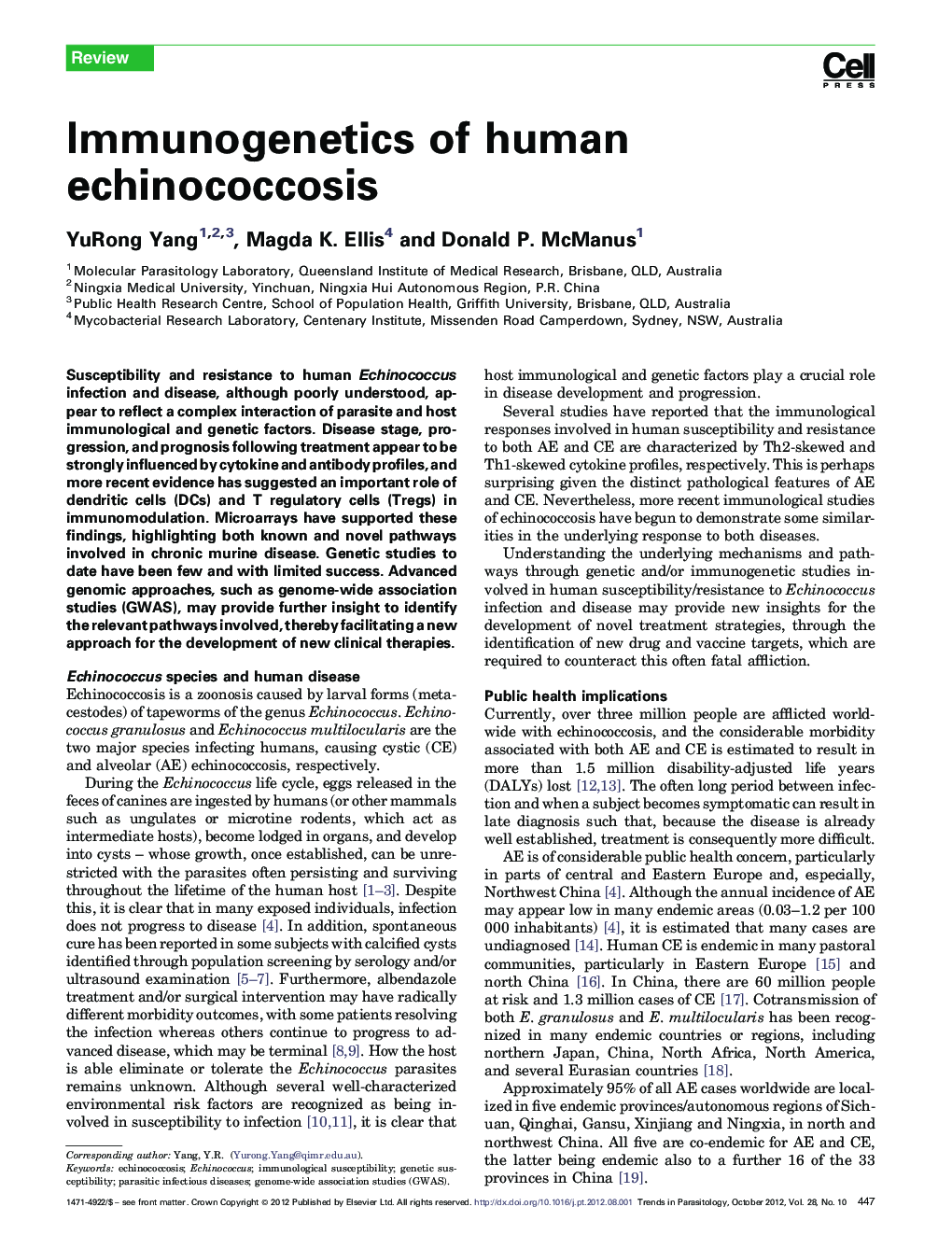| Article ID | Journal | Published Year | Pages | File Type |
|---|---|---|---|---|
| 3423100 | Trends in Parasitology | 2012 | 8 Pages |
Susceptibility and resistance to human Echinococcus infection and disease, although poorly understood, appear to reflect a complex interaction of parasite and host immunological and genetic factors. Disease stage, progression, and prognosis following treatment appear to be strongly influenced by cytokine and antibody profiles, and more recent evidence has suggested an important role of dendritic cells (DCs) and T regulatory cells (Tregs) in immunomodulation. Microarrays have supported these findings, highlighting both known and novel pathways involved in chronic murine disease. Genetic studies to date have been few and with limited success. Advanced genomic approaches, such as genome-wide association studies (GWAS), may provide further insight to identify the relevant pathways involved, thereby facilitating a new approach for the development of new clinical therapies.
